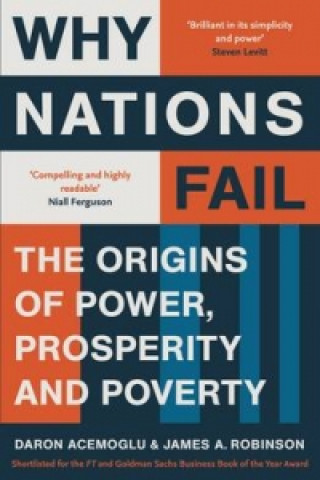
Kód: 01242366
Why Nations Fail
Autor Daron Acemoglu, James A. Robinson
Brilliant and engagingly written, Why Nations Fail answers the question that has stumped the experts for centuries: Why are some nations rich and others poor, divided by wealth and poverty, health and sickness, food and famine? I ... celý popis
- Jazyk:
 Angličtina
Angličtina - Vazba: Brožovaná
- Počet stran: 544
Nakladatelství: Profile Books, 2013
- Více informací o knize

Mohlo by se vám také líbit
-
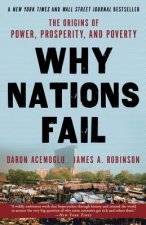
Why Nations Fail
356 Kč -
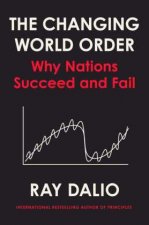
Principles for Dealing with the Changing World Order
513 Kč -

Surrounded by Idiots
298 Kč -
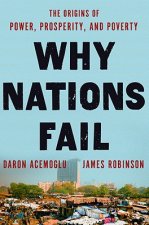
Why Nations Fail
726 Kč -

Poor Economics
288 Kč -

Power and Progress
493 Kč -

World Order
298 Kč -

Zero to One
337 Kč -

Prisoners of Geography
269 Kč -

Rational Optimist
259 Kč -

The Dawn of Everything
347 Kč -
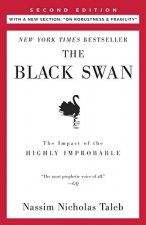
The Black Swan
415 Kč -

Start-Up Nation
259 Kč -

Intelligent Investor
523 Kč -

The Concise 48 Laws of Power
259 Kč -

Why Men Love Bitches
319 Kč -

Normal People
213 Kč -
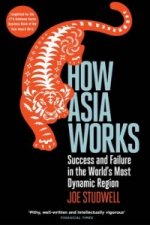
How Asia Works
298 Kč -

History of Central Banking and the Enslavement of Mankind
628 Kč -

Wealth of Nations
136 Kč -

Seven Husbands of Evelyn Hugo
239 Kč -

Japanese Knitting Stitch Bible
397 Kč -

How to Invest
396 Kč -

How the World Really Works
298 Kč -

Sell It Like Serhant
298 Kč -

Monk Who Sold his Ferrari
181 Kč -

12 Rules for Life
257 Kč -

Optimism Over Despair
220 Kč -

Diplomacy
445 Kč -

Getting Things Done
347 Kč -

The Fourth Turning
415 Kč -

Vogue Knitting The Ultimate Stitch Dictionary
983 Kč -

Psychology of Money
396 Kč -

Fear and Loathing in La Liga
333 Kč -

Uneasy Partnerships
800 Kč -

Fifty Things that Made the Modern Economy
258 Kč -
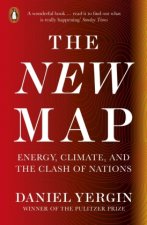
New Map
375 Kč -
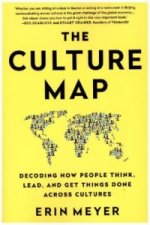
The Culture Map
402 Kč -

Future of Intelligence
532 Kč -

Science of Cooking
561 Kč -
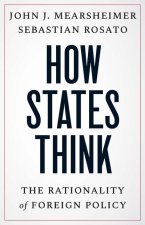
How States Think – The Rationality of Foreign Policy
657 Kč -

The Denial of Death
283 Kč -

Titan
471 Kč -

Operation Paperclip : The Secret Intelligence Program that Brought Nazi Scientists to America
563 Kč -

Life Force
445 Kč -

Narrow Corridor
337 Kč -

Reducing Uncertainty
572 Kč -

Generations
513 Kč -

IELTS 15 Academic Student's Book with Answers with Audio with Resource Bank
1026 Kč -

The Crime Book
382 Kč -

Letters to a Young Poet
84 Kč -

Why I Am so Clever
84 Kč -

The Art of War
80 Kč -

The 48 Laws of Power
523 Kč -

YEAR OF WONDER: Classical Music for Every Day
445 Kč -

Burn After Writing
288 Kč -

Principles
595 Kč -

Communication Book
288 Kč -

Professional Product Owner, The
768 Kč -

The Coaching Habit
354 Kč -

Managing The Professional Service Firm
396 Kč -

Presentation Secrets of Steve Jobs: How to Be Insanely Great in Front of Any Audience
358 Kč -

The Manager's Path
765 Kč -

48 Laws Of Power
372 Kč -

The Art Of Seduction
398 Kč -

Oil Painting Essentials
543 Kč -

Finding Me
333 Kč -

Four Elements
258 Kč -

Romeo and Juliet
85 Kč -

So Good They Can't Ignore You
433 Kč -

Wanted Man
220 Kč -

Complete First Workbook without Answers with Audio CD
311 Kč -

Office One Quote A Day
217 Kč -

Kapital
1252 Kč -

The Infernal Devices, the Complete Collection
955 Kč -

Das Kapital
181 Kč -

Věž úsvitu
319 Kč -

Angielskie piosenki dla dzieci. Słuchaj i śpiewaj wyd. 2
300 Kč -

Cristiano Ronaldo Kanonýr historie
297 Kč -

Lenin a 21. storočie
388 Kč -

Powrocmy do rozmowy
114 Kč -

Dráček Drápek a Cesta do Lávové hory
199 Kč -

Kainove deti
156 Kč -

Znamení a symboly katolické víry
97 Kč -

Don Quijote de la Mancha
132 Kč -

Stálo to za to
263 Kč -

TOPP Barevné košíčky z papíru
79 Kč -

Psaní na dotek
317 Kč -

Mária Magdaléna Nevesta v exile
273 Kč -

Mein Kampf
509 Kč -

Slovník biblické ikonografie
375 Kč
Dárkový poukaz: Radost zaručena
- Darujte poukaz v libovolné hodnotě a my se postaráme o zbytek.
- Poukaz se vztahuje na celou naši nabídku.
- Elektronický poukaz vytisknete z e-mailu a můžete ihned darovat.
- Platnost poukazu je 12 měsíců od data vystavení.
Více informací o knize Why Nations Fail
Nákupem získáte 34 bodů
 Anotace knihy
Anotace knihy
Brilliant and engagingly written, Why Nations Fail answers the question that has stumped the experts for centuries: Why are some nations rich and others poor, divided by wealth and poverty, health and sickness, food and famine?
Is it culture, the weather, geography? Perhaps ignorance of what the right policies are?
Simply, no. None of these factors is either definitive or destiny. Otherwise, how to explain why Botswana has become one of the fastest growing countries in the world, while other African nations, such as Zimbabwe, the Congo, and Sierra Leone, are mired in poverty and violence?
Daron Acemoglu and James Robinson conclusively show that it is man-made political and economic institutions that underlie economic success (or lack of it). Korea, to take just one of their fascinating examples, is a remarkably homogeneous nation, yet the people of North Korea are among the poorest on earth while their brothers and sisters in South Korea are among the richest. The south forged a society that created incentives, rewarded innovation, and allowed everyone to participate in economic opportunities.
The economic success thus spurred was sustained because the government became accountable and responsive to citizens and the great mass of people. Sadly, the people of the north have endured decades of famine, political repression, and very different economic institutions—with no end in sight. The differences between the Koreas is due to the politics that created these completely different institutional trajectories.
Based on fifteen years of original research Acemoglu and Robinson marshall extraordinary historical evidence from the Roman Empire, the Mayan city-states, medieval Venice, the Soviet Union, Latin America, England, Europe, the United States, and Africa to build a new theory of political economy with great relevance for the big questions of today, including:
- China has built an authoritarian growth machine. Will it continue to grow at such high speed and overwhelm the West?
- Are America’s best days behind it? Are we moving from a virtuous circle in which efforts by elites to aggrandize power are resisted to a vicious one that enriches and empowers a small minority?
- What is the most effective way to help move billions of people from the rut of poverty to prosperity? More philanthropy from the wealthy nations of the West? Or learning the hard-won lessons of Acemoglu and Robinson’s breakthrough ideas on the interplay between inclusive political and economic institutions?
Why Nations Fail will change the way you look at—and understand—the world.
 Parametry knihy
Parametry knihy
Zařazení knihy Knihy v angličtině Economics, finance, business & management Economics
337 Kč
- Plný název: Why Nations Fail
- Podnázev: The Origins of Power, Prosperity and Poverty
- Autor: Daron Acemoglu, James A. Robinson
- Jazyk:
 Angličtina
Angličtina - Vazba: Brožovaná
- Počet stran: 544
- EAN: 9781846684302
- ISBN: 1846684307
- ID: 01242366
- Nakladatelství: Profile Books
- Hmotnost: 458 g
- Rozměry: 195 × 128 × 34 mm
- Datum vydání: 07. February 2013
Oblíbené z jiného soudku
-

Freakonomics
191 Kč -

Team Topologies
486 Kč -

Pyramid Principle, The
1050 Kč -

Art of Statistics
288 Kč -

Predictably Irrational
390 Kč -
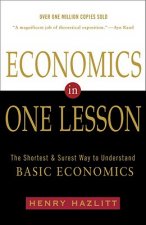
Economics In One Lesson
368 Kč -

Leading at a Higher Level
721 Kč -

Misbehaving - The Making of Behavioral Economics
269 Kč -

Irrational Exuberance
485 Kč -

Business Model Navigator, The
698 Kč -

Econometric Analysis, Global Edition
2028 Kč -

Liar's Poker
300 Kč -

How I Made One Million Dollars Last Year Trading Commodities
979 Kč -

Price of Inequality
256 Kč -

A-Level Economics: Year 1 & 2 Complete Revision & Practice (with Online Edition)
661 Kč -

Think Like a Freak
201 Kč -

Economic Facts and Fallacies
417 Kč -

Freakonomics
171 Kč -

Economics 101
333 Kč -

Hypomanic Edge
502 Kč -

ITIL4 A POCKET GUIDE
592 Kč -

Fed Up
606 Kč -

New World Economy: A Beginner's Guide
370 Kč -

Currency Wars
376 Kč -

Economics Book
513 Kč -

Decision Book
375 Kč -

Cult of We
283 Kč -

Debt by Design
371 Kč -

Facilitator's Guide to Participatory Decision-Maki ng, Fourth Edition
1061 Kč -

Essential Mathematics for Economic Analysis
2234 Kč -

(Mis)Behaviour of Markets
333 Kč -

The Invisible Hand
184 Kč -

Breakthrough Copywriter
427 Kč -

Debt, 10th Anniversary Edition
645 Kč -

Scrum - A Pocket Guide - 3rd edition
533 Kč -

Cartoon Introduction to Economics
401 Kč -

Discovery, Capitalism & Distributive Justice
464 Kč -

Economics: The User's Guide
333 Kč -

Human Action
947 Kč -

Phishing for Phools
409 Kč -

Misbehavior of Markets
560 Kč -
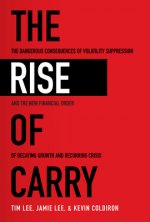
Rise of Carry: The Dangerous Consequences of Volatility Suppression and the New Financial Order of Decaying Growth and Recurring Crisis
602 Kč -

History of Economics
383 Kč -

Myth of Capitalism - Monopolies and the Death of Competition
465 Kč -

ISE Investments
1917 Kč -

How Rich Countries Got Rich and Why Poor Countries Stay Poor
383 Kč -

Leadership Presence
564 Kč -

Macroeconomics For Dummies
483 Kč -

45 Second Presentation That Will Change Your Life
232 Kč
Osobní odběr Praha, Brno a 12903 dalších
Copyright ©2008-24 nejlevnejsi-knihy.cz Všechna práva vyhrazenaSoukromíCookies



 Vrácení do měsíce
Vrácení do měsíce 571 999 099 (8-15.30h)
571 999 099 (8-15.30h)